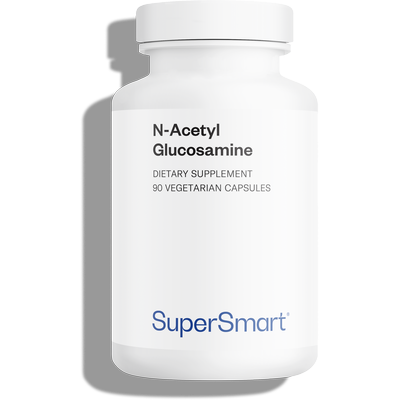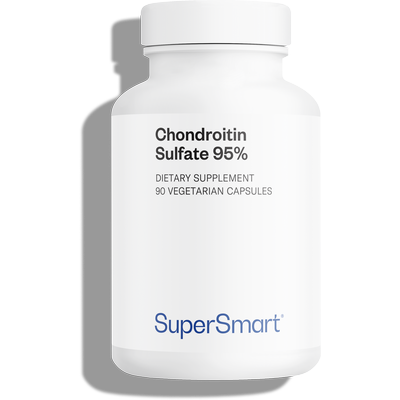21-03-2018
No proven efficacy for some arthritis drugs
 When you suffer from arthritis, you never really know which way the wind is going to blow. On some days the pain is tolerable, while on others, it’s completely unbearable. And on these occasions, you’ll do just about anything to find some relief and put a smile back on your face. And just about anything is an apt description if you decide to resort to non-steroidal anti-inflammatories (NSAIDs) and certain arthritis drugs (particularly those containing diacerein) according to the well-known journal Prescrire. In its list of medicines judged to be more dangerous than beneficial, these drugs are among 90 medications for which the claims have not really been proven or which « have an unfavourable harm-benefit balance ».
When you suffer from arthritis, you never really know which way the wind is going to blow. On some days the pain is tolerable, while on others, it’s completely unbearable. And on these occasions, you’ll do just about anything to find some relief and put a smile back on your face. And just about anything is an apt description if you decide to resort to non-steroidal anti-inflammatories (NSAIDs) and certain arthritis drugs (particularly those containing diacerein) according to the well-known journal Prescrire. In its list of medicines judged to be more dangerous than beneficial, these drugs are among 90 medications for which the claims have not really been proven or which « have an unfavourable harm-benefit balance ».So why would you choose to relieve your pain (to some degree) with a product that causes you more health issues? That’s the big problem with NSAIDs. Hundreds of studies have already shown that using these drugs long-term produces unwelcome side-effects (increased risk of cardiovascular events, perforations, gastric toxicity), with new research constantly adding to the list. One of the latest studies has just demonstrated that over time, these painkillers significantly increase the risk of hearing loss (by damaging the tiny hairs that line the ear and reducing its blood supply).
As for medications containing diacerein, which are supposed to act against the process that results in arthritis, they can cause frequent digestive problems, Quincke’s Oedema and hepatitis. For arthritis sufferers, that’s too great a risk in return for a moderate benefit.
So many reasons, then, to look to gentler alternatives which are just as effective according to the scientific literature. Yoga, for example, can relieve the pain of arthritis (especially of the hips, knees and ankles) even when practised in a sitting position2. And it obviously poses no long-term risks to health, in fact just the opposite! The same goes for all types of physical activity which do not overload the joints. It’s also possible to draw on natural health products such as chondroitin supplements: in a two year-study of two groups of arthritis sufferers, one supplemented with 1200mg of chondroitin a day, and the other medicated with the NSAID celecoxib, researchers reported identical levels of relief, but significantly-reduced cartilage loss in the chondroitin group3. A considerable advantage over NSAID-type painkillers which tend to accelerate the disease’s progress …
References
1. Brian M. Lin Sharon G. Curhan Molin Wang Roland Eavey Konstantina M. Stankovic Gary C. Curhan, Duration of Analgesic Use and Risk of Hearing Loss in Women, Am J Epidemiol (2017) 185 (1): 40-47.
2. Juyoung Park, Ruth McCaffrey et al. A Pilot Randomized Controlled Trial of the Effects of Chair Yoga on Pain and Physical Function Among Community-Dwelling Older Adults With Lower Extremity Osteoarthritis, J Am Geriatr Soc 65:592–597, 2017
3. Pelletier JP, Raynauld JP, Beaulieu AD, Bessette L, Morin F, de Brum-Fernandes AJ, Delorme P, Dorais M, Paiement P, Abram F, Martel-Pelletier J. Chondroitin sulfate efficacy versus celecoxib on knee osteoarthritis structural changes using magnetic resonance imaging: a 2-year multicentre exploratory study. Arthritis Res Ther. 2016 Nov 3;18(1):256.
Order the nutrients mentioned in this article
Further reading
24-06-2019
Better known as PEA, palmitoylethanolamide is a natural and powerful active principle discovered in 1957. Since then, it has consistently been the subject of new...
Read more01-08-2018
Inflammation – whether unseen or painful – has always been at the root of a variety of incapacitating ‘diseases of civilisation’, such as cardiovascular disease,...
Read more29-07-2019
Magnesium has until now been mainly known as an essential mineral for nervous system balance, cardiovascular regulation, muscle function and bone health. Now it seems...
Read more© 1997-2026 Fondation pour le Libre Choix
All rights reserved
All rights reserved
Free
Thank you for visiting our site. Before you go
REGISTER WITHClub SuperSmart
And take advantage
of exclusive benefits:
of exclusive benefits:
- Free: our weekly science-based newsletter "Nutranews"
- Special offers for club members only



















